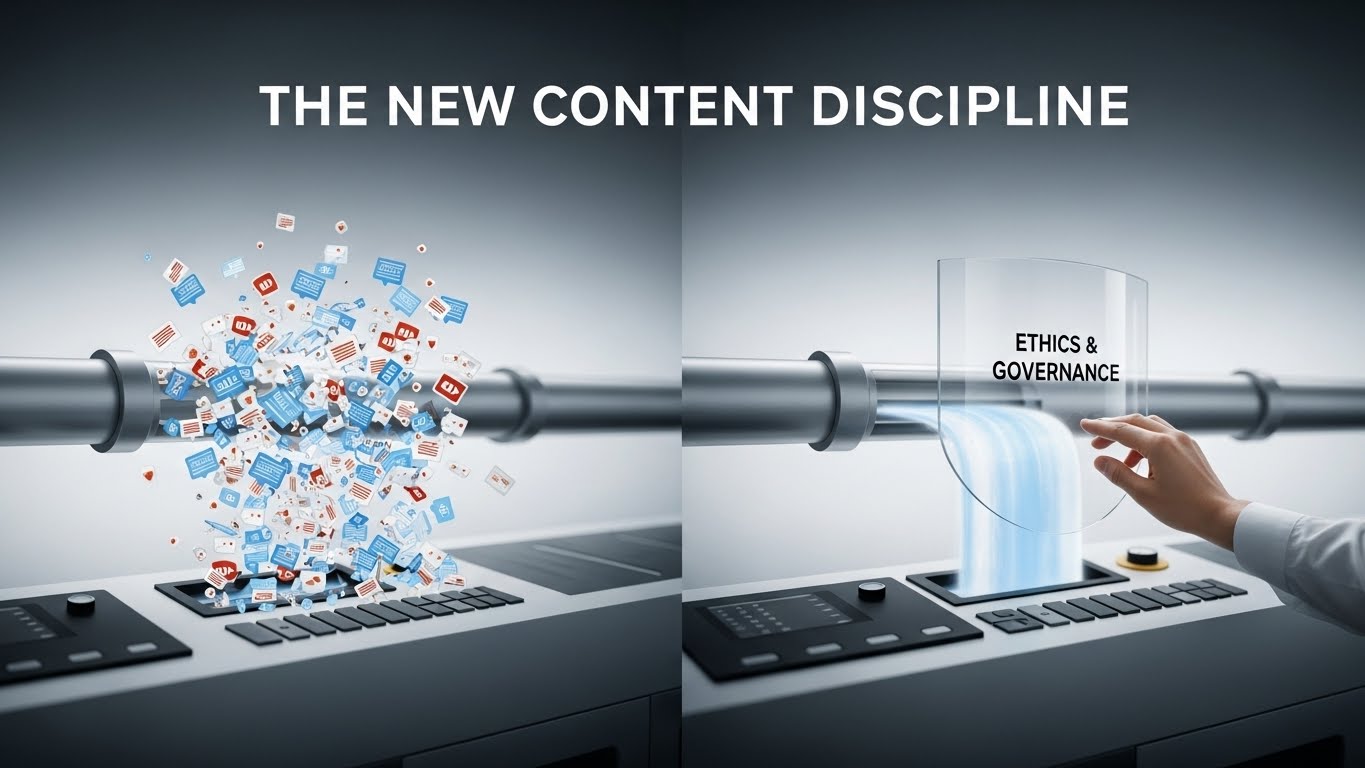As generative tools become more widespread and production costs continue to drop, marketers now face a paradox: content has become abundant, yet trust is eroding. Consumers welcome the convenience of AI, but they resist when automation replaces judgement, context or accuracy. The result is a delicate attention economy where volume no longer guarantees value, and brands that fail to adapt risk damaging the credibility they have spent years building.
The implications extend far beyond aesthetics. Recent surveys show that although consumers appreciate AI-assisted recommendations, many remain sceptical of fully AI-generated advertising. They prefer creative work that keeps humans in control. In short, consumers are open to AI, but only on their terms.
This tension defines what I call the new content discipline: a framework where strategy, ethics and editorial rigour shape how AI enters the marketing ecosystem.
The shift towards disciplined content
This discipline requires three major changes. First, marketers must prioritise intent over output and create only what serves a clear purpose. Second, they must embed a human-in-the-loop model that positions AI as an assistant, not a substitute. Third, brands must build transparency and governance into their processes so consumers understand how their data and attention are used. Industry audits and governance reports show these steps are no longer optional; they are essential for maintaining trust.
Why the old rules no longer work
A decade ago, content programmes chased reach and were rewarded for it. Today, reach without resonance can harm a brand. Research on consumer responses to AI-generated information shows that while labelling may reduce engagement slightly, secrecy and hallucinations damage trust far more. This leaves marketers with a difficult balance: they can use AI to scale insights and personalisation, but they must avoid automated output that lacks commercial logic, cultural understanding or factual accuracy.
A practical playbook for modern content teams
Strong content systems now rely on a series of disciplined actions.
Start with precision. Define the task clearly. Identify the desired action, outline the evidence needed, and select KPIs that link content directly to business value.
Enforce editorial controls. A human editor must review all AI-generated drafts for accuracy, tone, cultural sensitivity and brand alignment. Research on AI failures across global campaigns consistently shows that oversight, not technology, causes the most damaging mistakes.
Measure what truly matters. Shift focus away from vanity metrics. Track quality of attention, retention, intent and downstream conversions. Run controlled tests to assess whether AI-augmented creativity improves outcomes. If it does not, phase it out. Evidence shows that while failures are rising, many teams still underinvest in clear governance structures.
Commit to transparency. Records of ownership, authorship and data use matter. Consumers increasingly expect to know when AI is involved and how their information is handled. Academic studies show that consistent and honest disclosure strengthens trust over time.
Why leaders must act now
Speed matters in the marketing economy, but reliability matters more in the attention economy. Instead of treating AI as a production shortcut, brands should treat it as a strategic amplifier guided by editorial judgement and ethical guardrails. Industry research shows that brands who adopt hybrid human-AI oversight avoid most of the reputational and legal risks emerging today.
The new content discipline is not an argument for embracing automation blindly. It is a call to restore journalistic rigour to modern advertising. In an age where machines can create almost anything, credibility and curation have become the most valuable human skills.
ALSO WATCH MARKETING EDGE ONTV







Comment
No comments found.